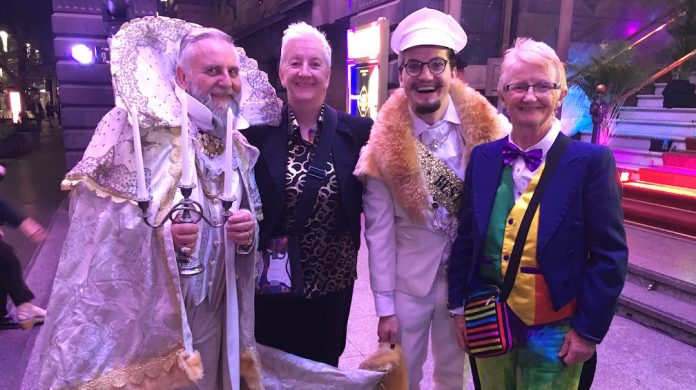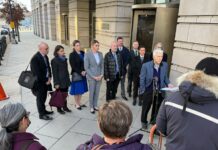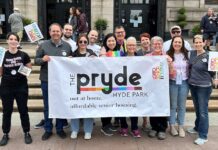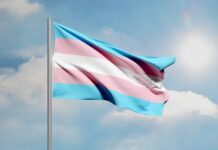[This story appears in the November|December 2017 issue of Boston Spirit magazine. Subscribe for free today.]
In October I was asked to represent Fenway Health, The LGBT Aging Project and the city of Boston as a keynote speaker for a national conference on LGBTI Aging in Australia. This included being a guest of honor at an inaugural event in the City of Melbourne—The Coming Back Out Ball.
These events provided an incredible opportunity to collaborate with our Australian colleagues around the innovative work in the field of LGBT aging both countries are undertaking. It was also an incredible opportunity to look into the lives and lived experiences of LGBT elders and their care providers on the other side of the world.
The Coming Back Out Ball was the premiere event for the Victorian Seniors Festival, a month-long celebration for older Victorians and presented in partnership with the Third Annual National LGBTI Aging and Aged Care Conference. The location of this event was itself a message of inclusion and acceptance, held in the glamorous and historic Melbourne Town Hall, which was lit up in rainbow colors for the night. The Victorian state government was a principal funding partner.
Tristan Meecham, founder and artistic director for All The Queen’s Men, a group that is dedicated to social equity through community engagement and the arts, envisioned the event to honor the lives and lived experiences of LGBTQI elders. Over the past few decades Australia has been going through a public process of undoing past wrongs to groups like the Aboriginals and to LGBTI elders.
The evening’s program featured some of Australia’s greatest artists, including opera legend Deborah Cheetham, the Coming Out Ball Orchestra led by Dr. Kathleen McGuire and the legendary performer Carlotta, who’s infamous show “Les Girls,” which started in 1963, was the inspiration for “Priscila Queen of the Desert.”
The evening’s program alternated between performers, government officials and videotaped testimonials from local celebrities and LGBTI elders. Some of the acts had guests on the edge of their seats like the Performing Older Women’s Circus, which is an acrobatic performance done by older women in their 50s and 60s. Another act featured a high-wire contortionist performing in red heels on a trapeze high above everyone’s heads. Other acts—like Carlotta and New York performance artist Lois Weaver as Tammy WhyNot and her sexy cowboys—had folks rolling on the floor.
One of the most moving moments of the evening was when Tristan stood alone on a platform in the middle of the ballroom and spoke about his gratitude and pride for LGBTI elders. He honored their experiences that shaped the rights and acceptance we have today. After he finished, he jumped down and ran table to table with the microphone introducing us to a number of his beloved LGBTI elders, all in their 80s and 90s, who each spoke about their lives.
As a spectator to the whole event, I don’t know what impressed me more: the quality and caliber of the performances or watching the joy in the eyes of the seniors as the night went on. This event was about them and for them, and they knew it.
I can’t think of a better way to honor a group of LGBTI elders, and with such style!
There was one more element that really stood out to me. The event was not limited to LGBTI elders; a great many people came from much younger generations but everyone partook in the merriment with equal gusto. And it wasn’t just LGBTI people in attendance either. Since this was part of the Victorian Seniors Festival, it was attended my quite a number of straight members of Melbourne’s senior and artistic communities.
It was an evening of diversity and inclusion at its finest!
Bob Linscott is assistant director of the LGBT Aging Project at Fenway Health.









